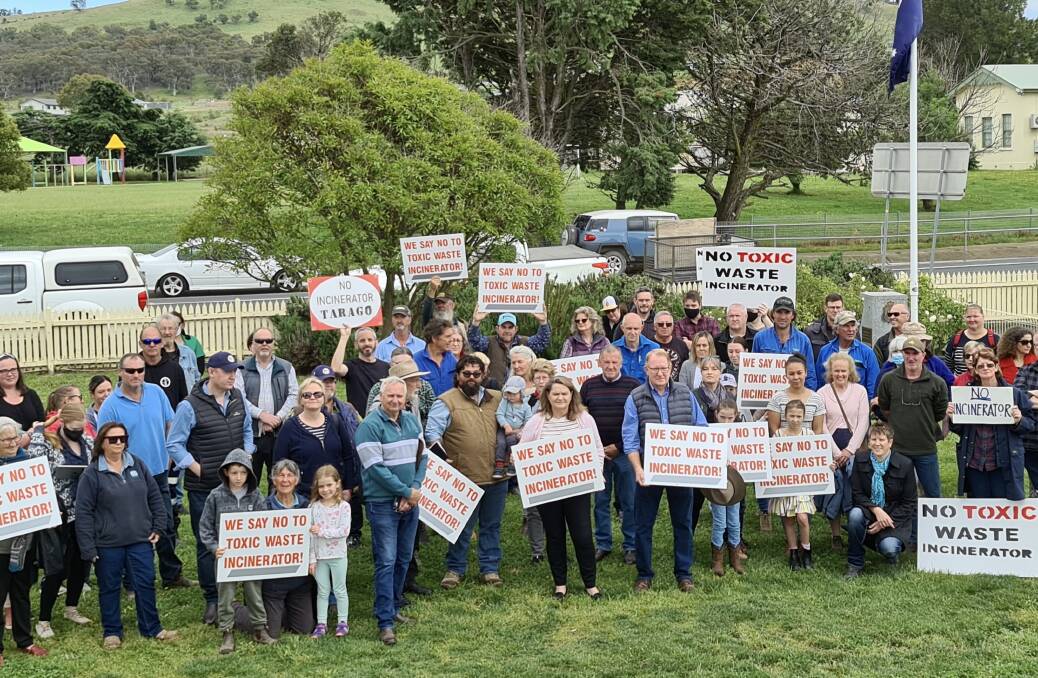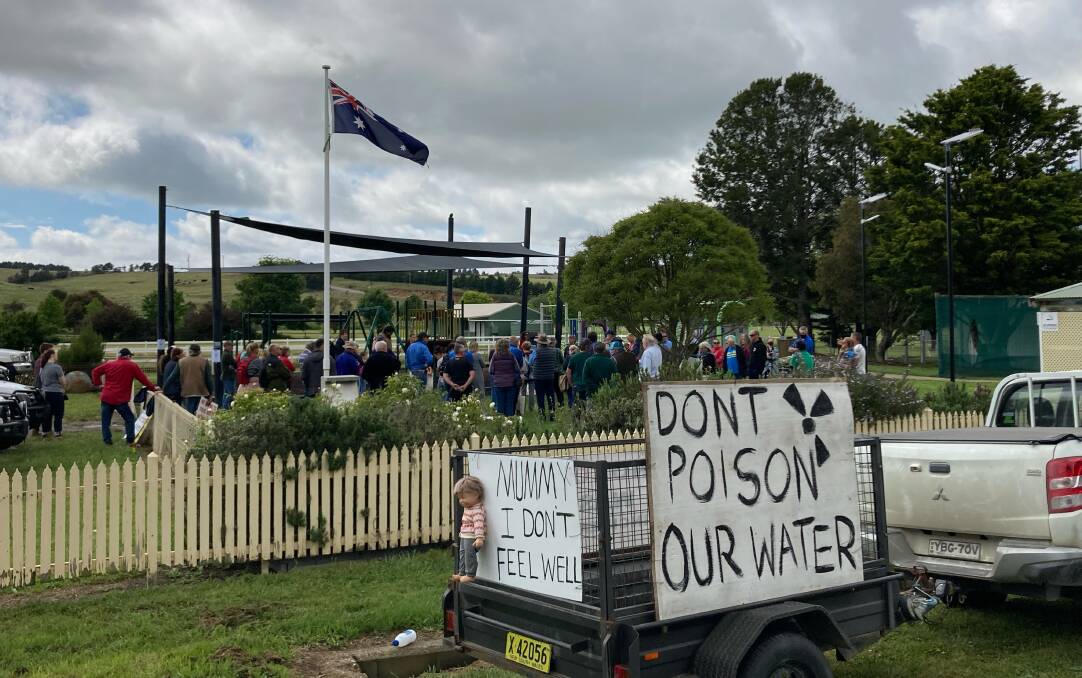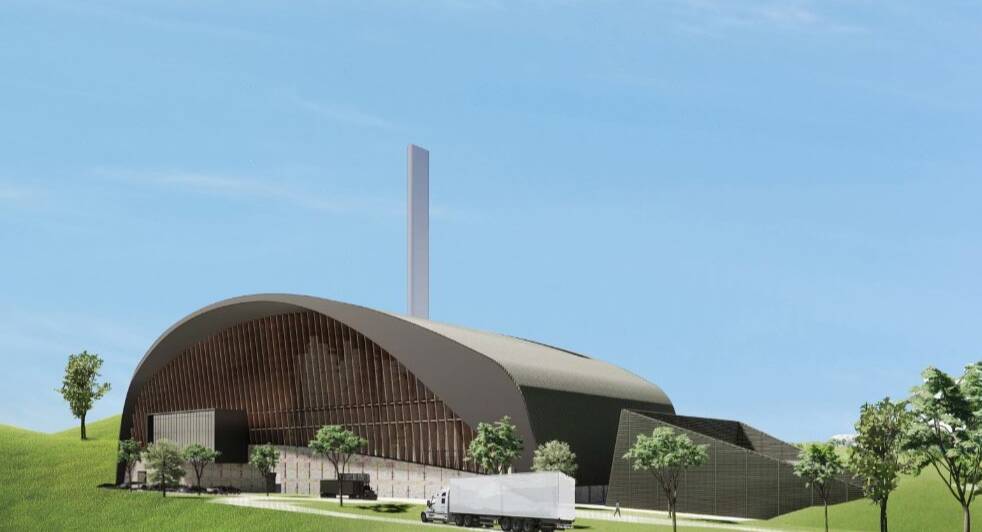
A community campaign against Veolia's waste to energy proposal has gathered pace and won political support.
Subscribe now for unlimited access.
or signup to continue reading
Goulburn MP Wendy Tuckerman voiced her clear opposition to the $600 million proposal for the Woodlawn eco-precinct near Tarago at a meeting on Saturday.
She was also due to deliver a parliamentary speech on Wednesday, echoing the sentiment.
It comes as Goulburn Mulwaree Council forms a 'strike force' of experts and community representatives to respond to a looming environmental impact study.
READ MORE:
She met with up to 100 Tarago and district residents, Mayor Bob Kirk and council general manager Wendy Tuckerman, council candidates and others in the town.
Afterwards she said she would take people's concerns to Planning Minister Rob Stokes and Environment Minister Matt Kean.
"Let it be known and clear: I do not want an incinerator anywhere in the Goulburn electorate," she said in a statement.
"The state government has created policy for a permissable zone for this technology in Tarago. This state-wide plan was a result of existing waste infrastructure and economic strategy - a policy to ensure they would not be popping up across our region and it was not a deal done to save Bungonia and sacrifice Tarago."
Ms Tuckerman said she was not assured there would be no human human health and environmental impacts - "no matter how high the policy set emissions limits are for air quality."
"It is very clear the Tarago community stance on this issue and I stand with them. In a rural setting, abundant in food production I do not want an incinerator...We will fight this," she said.

The MP attended at the invitation of Communities Against Tarago Incinerator. Member Paige Davis said she was very pleased that Ms Tuckerman had accepted the group's invitation to meet with residents.
"We're very happy that she has finally stated her opposition to the project and we look forward to her enthusiastically supporting our position and doing what she can to stop it...We have high expectations that she will work with us to stop this from going ahead," she said.
Ms Tuckerman also participated in a zoom meeting involving Goulburn Mulwaree, Parkes, Lithgow and Richmond Valley Councils on Friday. They were able to ask questions of the EPA and NSW chief scientist about waste to energy technology, safety and impacts.
Afterwards, she said while it assured her that the government had the "highest standards for waste-to-energy air quality control in the world," her questions remained around the individual point source monitoring and the 'what if?'.

"What if these standards are exceeded? How do we monitor the feedstock? How do we know that what goes in is not toxic and harmful?" she said.
"Any breach of these limits would be incredibly concerning and not something that could be easily remedied. I cannot support any project that may impact the health of our community or the environment."
Goulburn Mulwaree Council general manager Warwick Bennett said he was also "underwhelmed" by the authorities' responses to 15 questions.
"I don't think we are any further ahead than we were before the meeting in regard to the effect it will have on human and environmental health and food production," he said.
"The majority of those who participated came away disappointed and thought there wasn't enough information."
Questions included:
- The effect on surrounding land, the safeguards in place if 'the wrong type of waste' was injected into the plant and its effect on the area;
- The greenhouse pollution generated by transporting the material from Sydney to Tarago;
- Whether emissions would be reduced by diverting some of the waste Woodlawn already received into the plant.
On the latter, Mr Bennett said the chief scientist explained there would be some net benefit because waste could be recycled into electricity but could not say by how much.
The council is also concerned about Veolia's ability to control emissions given odour complaints at the Woodlawn bioreactor over many years.
As a result, it will form a 'strike force' to respond to a forthcoming EIS. Mr Bennett said this would include university experts, other professionals, Anglican reverend Paul Davey and community and council representatives.
"The bottom line is that any challenge (to the EIS) needs to be fact-based. Having good people involved in the strike force is essential to that," he said.
Veolia CEO and managing director Richard Kirkman previously said that while he respected people's concerns, the technology was safe, as proven by Veolia's other plants around the world.
He also cited the EPA's 'stringent guidelines' and said the company wouldn't build such projects if they were harmful to human, animal or environmental health.
Do you have something to say about this issue? Send a letter to the editor. Click here for the Goulburn Post


